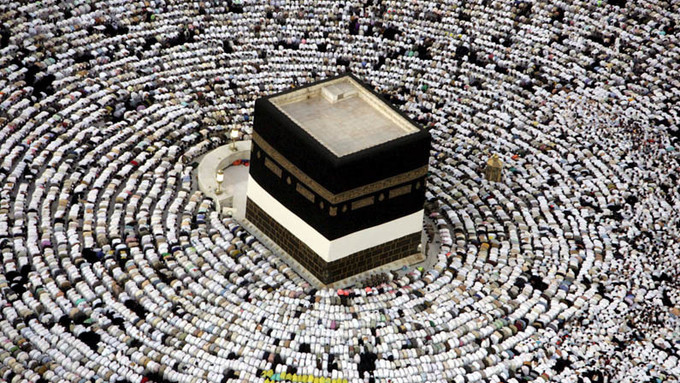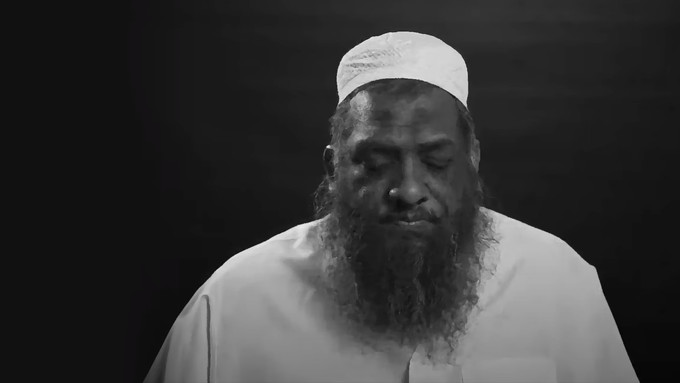Between Doubt & False Certainty
“[Prophet], they ask you about the Spirit. Say, ‘The Spirit is part of my Lord’s domain. You have only been given a little knowledge.’ If We pleased, We could take away what We have revealed to you – then you would find no one to plead for you against Us.” [17:85-86].
Imam Muhammad ibn Jarir Al-Tabari relates that these verses were revealed in response to a group of Jewish rabbis who were passing by the Beloved ﷺ, whispering among each other, “If he really is the Messenger of God as he proclaimed, he would be able to tell us what the Spirit is.” But the answer given in the verse was that they would not receive an answer, and a reminder of how little knowledge they and we had been given, which could also be taken away as well.
There is a lesson to be taken from these verses, which is to not assume that our proclamation of upholding the Truth means we know everything or that we have the answers to everything. It is a call towards intellectual and spiritual humility by recognizing our own state of ignorance. This is a difficult reality to confront, especially given the expectations people will have when they hear a Muslim declare Islam as the complete religion that provides total answers to all life’s questions.
Such a declaration of completeness in this way oversimplifies the complexity of Islam as a religion. Instead of seeing Islam as a source of exalted principles and parameters where the details can change according to advances in knowledge, as well as in response to differing times and places, it becomes a religion where individuals seek details they had assumed were transcendent. Thus, Islam is transformed in this way from a religion with a simple creed into a religion with a simpleton view of life.
A hallmark of extremists and those inclined towards a radical absolutist approach to all things religious, whether they be believers or not, is the absence of humility. They voice their opinions with absolute certainty and conflate that with having conviction and belief in their position. But what is belief if not for it having an element of faith? Faith is the acknowledgement of the Unseen. It is an embrace of one’s limitations. Faith is not what many atheists claim to be: either a belief in the irrational or a belief without or against evidence. To the contrary, faith is the belief arising from accepting the evidence of one’s ignorance. It will therefore be inextricably linked with the element of doubt.
Imam Muslim relates the story of the Companion Hanzhala ibn ar-Rabee’ al-Usaydi (may Allah be pleased with him) who met Abu Bakr al-Sideeq (may Allah be pleased with him) one time and was asked, “How are you Hanzhala?” He replied, “Hanzhala has become a hypocrite!” He then complained about the difference in spiritual states that he was experiencing. When he was with the Beloved ﷺ, he was experiencing a state of certainty as if he was witnessing the Unseen realm directly. But away from him and busy with family and daily business affairs, he no longer experienced that certainty. Abu Bakr (may Allah be pleased with him) confessed he was also finding the same thing and they both went to tell the Beloved ﷺ. His response was, “If you remained in the state as you are with me, the Angels would shake your hands in your homes and on the streets, but a time for this and a time for that.”
The Companions’ personal struggles were not limited to spiritual stations of certitude and belief. They also experienced doubts and their minds raised questions that tested their belief to a point that troubled them. It is narrated on the authority of Abu Hurairah (may Allah be pleased with him) that some of the Companions came to the Beloved ﷺ and said, “O Messenger of God, we find ourselves thinking things so grave we prefer to not have this life than to speak of them.” The Beloved ﷺ replied, “Were you conscious of it? Then that is sincere faith.”
The Arabic word zhann is the same word for both conjecture and certainty, and it is used to indicate both meanings in the Quran. However, in the context of believers, it is used to describe a state of knowledge that can only be attained through humility, which is a quality of those who recognize their human weakness and utter need in the first place. They are ones who “Seek help with steadfastness and prayer – though this is hard indeed for anyone but the humble, who know that they will meet their Lord and that it is to Him they will return.” [2:45-46] This is in contrast to a type of people who disbelieved not because they had doubts about belief, but a false sense of certainty in their assumptions, which led to their disbelief, “Most of them follow nothing but assumptions, but assumptions can be of no value at all against the Truth.” [10:36]
Doubt has become a dirty word for many believers. However, it is in losing doubt, which in turn is a loss of faith, that one takes their first step towards dogmatism. It is a road that ends in elevating oneself to a Divine status. This is manifested in the way some declare themselves to be the “saved group”, regardless whether it is because they are saved in the Next Life for the particular form of Islam they deem correct in contrast to others, or saved in this life because they have abandoned Islam or religion altogether and became “enlightened” through philosophy and modern science. That is why the Quran reminds us, “Do not assert your own goodness: He knows best who is mindful of Him.” [53:32]
Doubt scares people. Hence, they seek to quell it by imposing upon others what they believe is the “authentic” or “correct” way. This is an attempt to avoid having to deal with asserting one’s identity from within. It is a seeking for external validation through conformity. The irony of using external force to impose one’s belief upon others is that it is a sign of an internal weakness and lack of confidence in those very beliefs being imposed.
In response to these impositions, many speak about the need for tolerance. However, tolerance does not indicate acceptance, but the contrary of it. Being in a state of tolerance means being patient. A tolerant person towards others is one who shows forbearance in the face of difficulty. It is a state of being silent through suffering. What we should seek is not tolerance of the other, but acceptance of them as they are, and the first step to doing so is to recognize our own doubts as existential to being human. We may not share the same doubts, but we share being in the state of doubt. How we handle being in this state is the reason why some of us practice exclusion while others practice inclusion.
As one’s knowledge grows, their circle of certainty becomes smaller, but their foundation in their belief becomes stronger without being dogmatic. This is a matter of discerning constant principles from variable details. The most dogmatic are often the least informed. Those who reject the fundamental right of humans to differ and choose different paths are quite often the causes of discord and conflict. They espouse the most dangerous sense of conviction because it comes from a false sense of certainty, which can in extreme cases lead to actions of violence against others.
Doubt is not a station one stays in for perpetuity. But it is a station one must pass through before arriving at the station of Knowledge. More importantly, it is not a station one can leave solely through contemplation. To put it in the words of Hafiz:
Don’t sit there thinking; go out and immerse yourself in God’s sea.
Having only one hair wet with water will not put knowledge in that head.
In his autobiography Deliverance From Error, Imam Al-Ghazālī speaks of how he was able to deal with his doubts. In spite of all his knowledge and investigations of all the different claims, he was unable to settle the matter except through applying the recipe prescribed by the Sufīs. After reading all that can be read from their scholars, he recognized they were a “People of Stations, not a People of Statements.” One could spend eternity reading. But it is all in vain if it leaves one in a spiritually idle state.
This is part of what Islam is about: the transformation of statements into stations through action. If one seeks to experience a Ghazalian transformation, they must first embrace their doubts as he did, then with humility dive into the ocean of Mercy to the Worlds in order to experience the Divine Presence that will cast all doubts out of their hearts. As Hafiz tells us:
For those who see only God, their vision
Is pure, and not a doubt remains.
Even if our world is turned upside down and blown over by the wind,
If you are doubtless, you won’t lose a thing.
O Hafiz, if it is union with the Beloved that you seek,
Be the dust at the Wise One’s door, and speak!
Faith & Spirituality Related Articles

5 Practical Steps To Get You Ready for Ramadan
As Ramadan is less than a month away, we might feel we often haven't done enough to prepare for it. Here are 5 things we can do right now during Shaban to make sure that we get the most out of Ramadan. The Prophet (Peace & Blessings upon Him & His Family) supplicated,” O Allah give us the blessings of Shaban and give us the treasure of Ramadan.”

Hajj at Home: Kindling the Spirit of Arafah
Even if we are not on Hajj this year, our situation is no different. We navigate through the complexities of our daily life, immersed in the never-ending responsibilities of work and family, inundated with the intrusions of technology and social media into every minute of our lives, moving from place to place and idea to idea.
